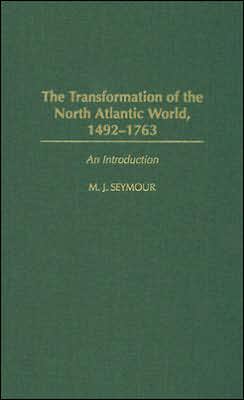

 |

|

The average rating for Transformation of the North Atlantic World, 1492-1763: An Introduction based on 2 reviews is 3 stars.
Review # 1 was written on 2018-03-26 00:00:00 Deborah Guthrie Deborah GuthrieIn his book, University of Exeter professor Jeremy Black describes European international relations during four important periods: (i) from the Peace of Westphalia (1648) to the Second Partition Treaty (1700), including the Franco-Spanish conflict (1648-59), events in Poland and Ukraine (1648-57), the "Turkish question", politics of Louis XIV (1661-71), the Dutch War (1672-79) and the Nine Years' War (1688-97); (ii) from the Great Northern War (1700-21) and the War of Spanish Succession (1701-1714) to the death of Charles VI (1740), including the events in Poland and the Baltic (1721-40), the wars against Turkey and Persia (1714-39), and the "Italian question" (1714-52); (iii) from the War of the Austrian Succession (1740-48) to the annexation of Crimea by Russia (1783), including the "Diplomatic revolution" of 1755-56, the Seven Years' War (1756-63), the First Partition of Poland and the Russo-Turkish War (1768-74), and the "Anglo-Bourbon struggles" (1763-83); and (iv) from the war and confrontation in Eastern Europe (1787-95) to the Congress of Vienna (1814-15), including British recovery (1783-90), the French Revolutionary War (1789-99), and Napoleon's politics (1799-1815). The author argues that, prior to the French Revolution and the American declaration of independence, international relations and wars were primarily motivated by territorial ambitions and legalistic claims to dynastic rights, rather by ideological considerations. He also suggests that Napoleon represents a culmination of the politics of "grab" (three Partitions of Poland in 1722, 1793 and 1795 being an example) and destabilization, and which were substituted in 1815 by the culture of "restraint" in international relations after the Congress of Vienna and creation of the Holly Alliance. And if major European powers in 1648 were Austria, France, Russia, Spain, Turkey and the United Provinces (modern Netherlands), by 1815 Britain and Prussia were added to this list and the United States removed from it; indeed, post-1815, Britain was the dominant naval power and Russia - the dominant continental power, especially in Eastern Europe. A large part of the book, however, reads as an endless list of wars, battles and treaties, rather than an engaging narrative. |
Review # 2 was written on 2016-04-20 00:00:00 ROB SAS ROB SASProfessor Black, one of the top historians of his generation, provides an overview of the history of international political relations from the Peace of Westphalia to the downfall of Napoleon. This study is valuable for its analysis and inclusion of events in East Europe. Even so, the study falls short of replacing the work of Derek McKay and Hamish Scott. The bibliography is a disappointment. |
CAN'T FIND WHAT YOU'RE LOOKING FOR? CLICK HERE!!!